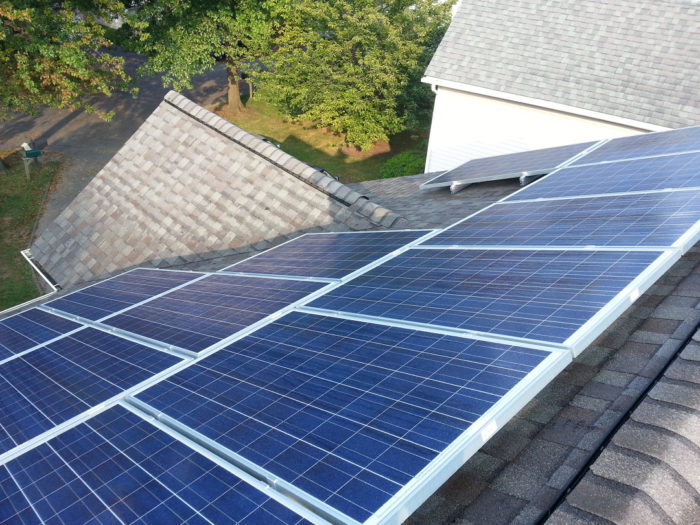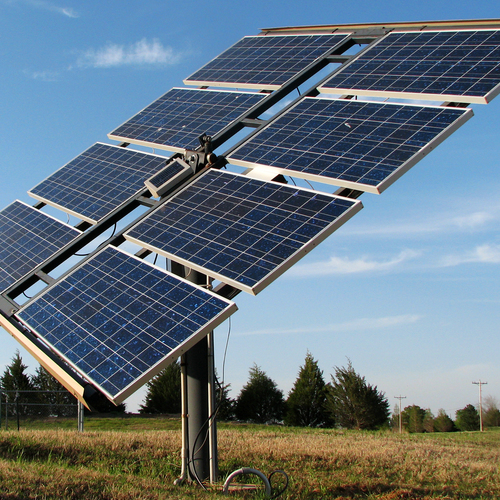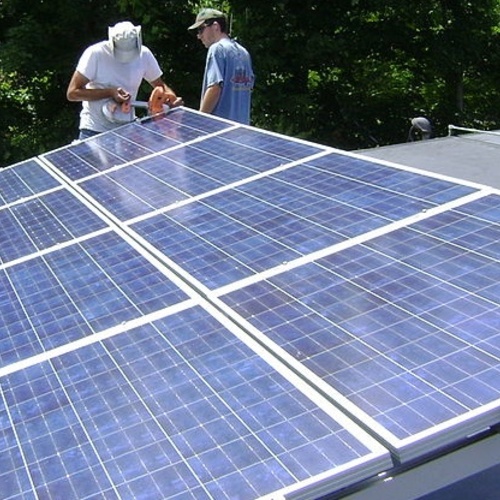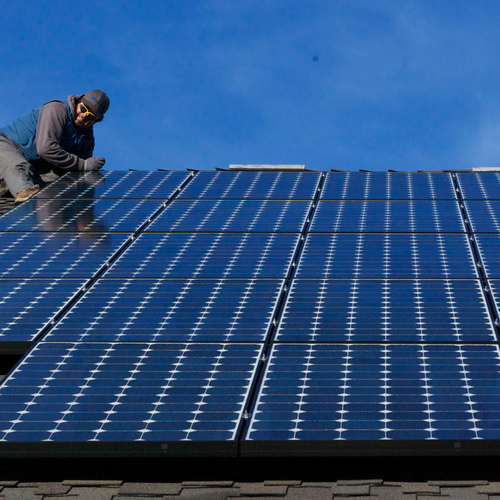
Image Credit: Solar Energy World, LLC via Flickr
A circuit court judge in Dane County, Wisconsin, has blocked plans by the state’s largest electric utility to impose new fees on utility customers who install a photovoltaic (PV) system.
The state’s Public Utilities Commission had already approved the new charges, which would have added about $19 to the power bill of a customer with a 5-kilowatt PV array. But Judge Peter Anderson ruled the commission didn’t have enough evidence to justify the increase, according to an article by the Milwaukee-Wisconsin Journal Sentinel.
In seeking the new fees, We Energies said that customers with PV systems “contribute less than their equitable share” to paying fixed charges of grid maintenance. In addition to the $3.79 per kW charge for customers who own a PV system, the utility also sought to clear the books on net metering accounts at the end of each month, rather than annually, and to lower the net-metering rate from about 14 cents per kilowatt hour, the retail rate, to between 4 cents and 5 cents per kWh, the wholesale rate.
The newspaper said that the proposal for new fees generated more public comment than any other rate case involving We in recent years. It attracted attention from regional and national groups, and prompted radio and web ads and more than 1,500 public comments. The Alliance for Solar Choice filed a lawsuit to block the changes in January, resulting in the October 30 ruling.
“This is huge,” Alliance spokeswoman Amy Heart told the Journal Sentinel. “We hadn’t seen any public service commission approve such a high discriminatory charge on solar customers, and the court clearly stated that there needed to be evidence to justify that sort of charge.”
We Energies and the Public Service Commission (PSC) were reviewing their legal options.
Some parts of the PSC ruling will stand
Anderson’s ruling leaves some parts of the PSC’s order intact. Net metering rates will be lower, according to We Energies spokesman Brian Manthey, and the utility will be allowed to retain the higher fixed charges it has been assessing all customers since January.
The doomed $3.79-per-kWh charge would have reduced the savings enjoyed by a customer with a 5 kW by about 25%, according to estimates by Renew Wisconsin. It would have been even worse for customers generating power with biogas or hydro, who would have faced an increase in monthly fees of $8.60 per kW in capacity.
Although the case has been followed closely, it affects a relatively small number of customers. Only about 1,000 of We’s 750,000 to 800,000 residential customers actually own their own PV systems, Manthey told GBA in February. Leased solar is not permitted in Wisconsin.
The number of renewable energy customers is small now, and that makes it the right time to address questions of rate fairness, the PSC said at the time.
“The use of distributed generation is expected to continue to increase and it is important for those making such investments to understand the real costs and benefits of those investments and make informed choices,” the commission said.
Weekly Newsletter
Get building science and energy efficiency advice, plus special offers, in your inbox.















One Comment
Rate setting logic
At a superficial level, it seems completely logical that the rates paid by a net-metering customer should be based on the cost imposed on the utility by a net-metering customer. However, if you think more deeply about it, you will recognize that regular residential rates are not set with that logic. Using different logic for different classes of customers inevitably raises fairness problems.
A high percentage of a utility's cost, for both regular customers and net-metering customers, is fixed cost associated with being capable of satisfying demand. We could adopt a rate structure that made everyone pay a fixed monthly cost sufficient to cover their share of the utility's fixed cost and set the per kwh price based solely on the incremental cost of generating the electricity. The result would be a much higher fixed monthly charge and a much lower rate per kwh than the current rates. In response, people would use a lot more power and the utility would need to build out yet more infrastructure with more fixed cost.
The philosophy generally used by governments for setting residential utility rates is to a) set the rate such that the utility will earn a fair rate of return on its capital investment at expected total usage levels and b) structure the rates to provide the correct incentives to individuals such that they behave in a way that is consistent with the public interest. (This philosophy isn't what guides a for-profit utility's rate request.) When someone wants to change the rate structure to dis-incentivize distributed generation, they need to make the case that distributed generation is not in the public interest. Discussion of whether various customers are paying their "fair share" of the utility's fixed cost is a distraction from that conversation.
Log in or create an account to post a comment.
Sign up Log in